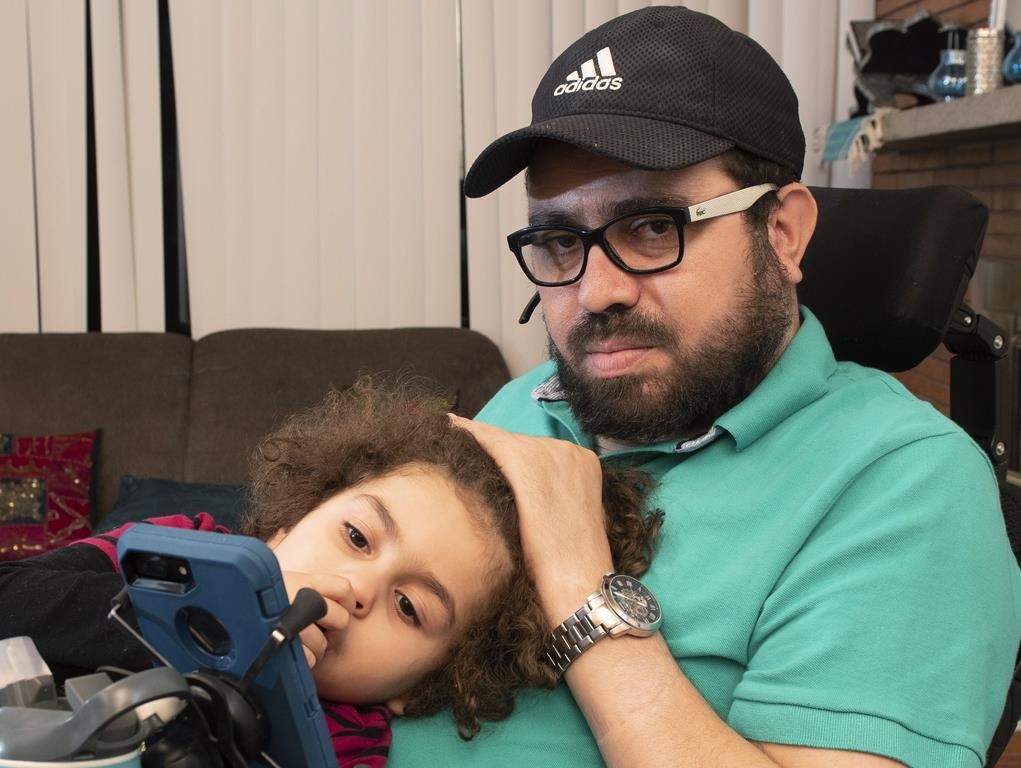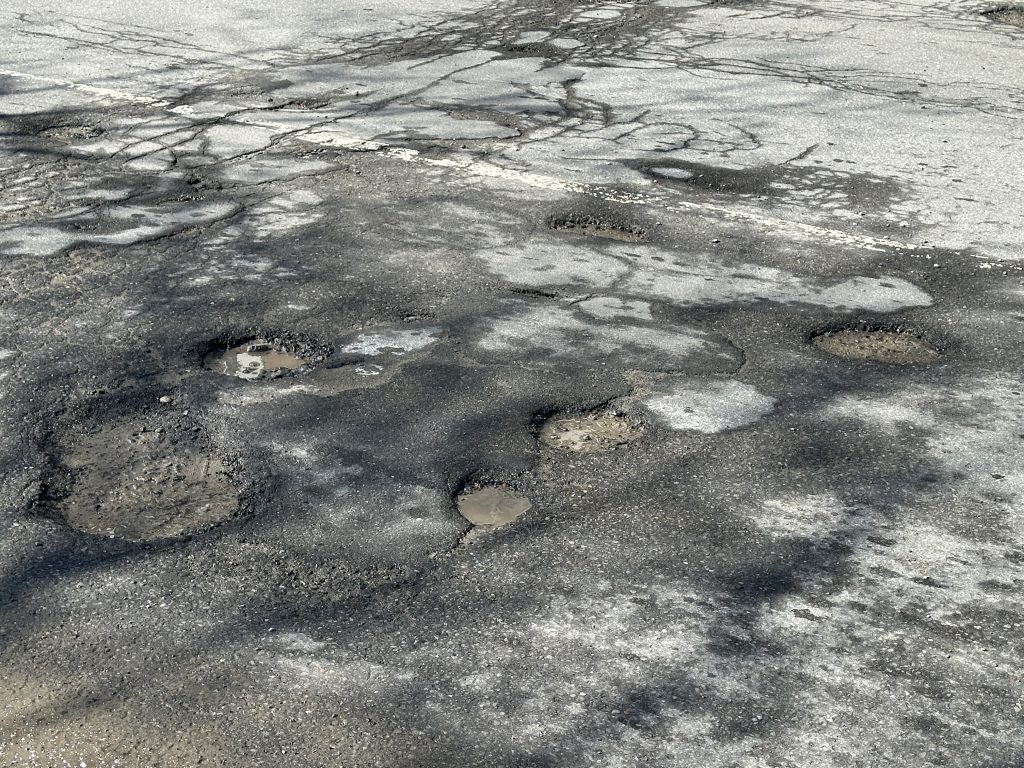Quebec City mosque shooting survivor wants harsher punishments, increased jail time for Islamophobic crimes

Posted January 26, 2022 9:00 am.
Last Updated January 26, 2022 7:10 pm.
A survivor of the Quebec City mosque attack five years ago is among a group of voices calling for a special law and harsher punishments to tackle Islamophobia, including lengthier prison time for some offences.
Aymen Derbali was seriously injured in the Jan. 29, 2017 mosque shooting where six Muslim men were killed.
The 44-year-old was one of more than 50 people attending evening prayers when a gunman opened fire.
The mosque shooting claimed the lives of six men: Mamadou Tanou Barry, Abdelkrim Hassane, Khaled Belkacemi, Aboubaker Thabti, Azzeddine Soufiane and Ibrahima Barry.
The shooter Alexandre Bissonnette, who pleaded guilty to six counts of first-degree murder and six of attempted murder, had consumed Islamophobic and far-right anti-immigrant literature online.
“They should establish jail punishment for those who commit this, Islamophobia crimes,” said Derbali.
“We need to have this kind of punishment in order to stop the spread of Islamophobia. Because Islamophobia, sometimes it’s very dangerous and harmful.”

Aymen Derbali and his daughter Maryem are shown in their home in Quebec City, Thursday, Jan. 24, 2019. THE CANADIAN PRESS/Jacques Boissinot
READ:
- Quebec City mosque attack five years later: imam recalls immense sorrow, disbelief
- ‘Muslims do not feel safe’: Bill 21 is fuelling Islamophobia in Quebec, say advocates
Derbali, who was hit by seven bullets, was paralyzed from the waist down and uses a wheelchair to get around. One bullet remains lodged in his spine.
He put himself in the line of fire to distract the shooter. He was labelled a hero and honoured with a medal for bravery.
“The last bullet I received on my abdomen cut my spinal cord… It remains in my spinal cord till now,” he said.
WATCH: Hero of Quebec mosque massacre recalls tragedy (Jan. 29, 2018)

Like Derbali, imam Aarij Anwer would like to see harsher punishments for Islamophobia.
Anwer is with the London Muslim Mosque in Ontario. London was the site of a deadly attack on a Muslim family last June.
A pickup truck, driven by a 20-year-old London man, mounted a curb, and deliberately struck the family as they were out for an evening walk. Four people were killed and another wounded – all were from the same family.
Salman Afzaal, 46, his 44-year-old wife Madiha Salman, their 15-year-old daughter Yumna and her 74-year-old grandmother, Talat Afzaal, were killed. The couple’s nine-year-old son, Fayez, was seriously hurt.
Police allege the driver deliberately targeted the family in an act of hate against the Islamic faith. Prosecutors say it was an act of terrorism.
“There has to be something harsher in its punishment, that’s more preventative, that serves as preventative measure for others who have these evil ideas” said Anwer, who believes advocating for special laws against Islamophobia should fall on organizations like the National Council of Canadian Muslims.
“That they see a harsh punishment being made out to someone who is a terrorist, and that will stop them in their tracks.”
Inciting hate in Canada is already punishable by law by up to two years in prison.

Lawyer Asha James, who specializes in state accountability, believes the possibility of extending that maximum sentence is not unrealistic.
“There’s merit to what’s being asked to be done,” said James. “And it’s gonna be the pressure on our elected officials to be able to move that ball forward. But it’s things that happen in other jurisdictions, maybe not specifically targeting only one type of hate crime or against one specified group.”
Mubin Shaikh, a public safety professor at Ontario’s Seneca College, believes the current law would not necessarily need to be changed if it was enforced differently.
“What needs to be done instead of proposing a new law is just for authorities to be strict on applying the current law,” said Shaikh. “It could be that police agencies can be given a little bit more latitude and discretion in laying those charges.”
For Derbali, who lives with the physical and emotional scars of the Quebec City mosque attack every day, he says it’s hard to feel like things have gotten any better towards the Muslim community. He believes Islamophobia and hate continue to spread, especially online.
“There are some calls for violence, but I think that they, right-wing extremist groups, that they spread Islamophobia on social media,” said Derbali.









